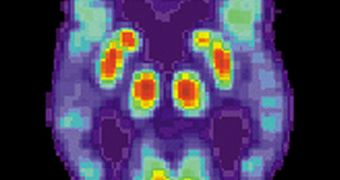Researchers at the Mayo Clinic, in Rochester, discovered recently that it may be possible to assess a person chances of developing Alzheimer's disease later on by analyzing data collected by a brain scan.
According to neurologists in the research team, a medical imaging technique called proton MR spectroscopy is able of providing doctors with all the relevant data they need to make a correct prediction for that patient's future.
In order to arrive at these conclusions, investigators surveyed about 311 people – average ages of 70 and 80 – who were a part of the population-based Mayo Clinic Study of Aging, PsychCentral reports.
Using the new approach, experts looked for biomarkers that are usually associated with this condition. A biomarker is usually a chemical that only appears in the body in certain concentrations and places when a specific disease develops.
For example, the biomarkers used to discover cancer do not appear in the human body in the amounts they do in the bodies of those who developed the disease. This allows experts to assess whether a person is sick or not without invasive procedures.
For this particular investigation, scientists focused on a series of chemicals called brain metabolites, of which some may be construed into Alzheimer's biomarkers. By tracking concentrations of these compounds, doctors can assess the risk a person is subjected to in terms of developing dementia.
Details of the new investigation appear in a paper published in the latest online issue of the medical journal of the American Academy of Neurology (AAN), Neurology. For this study, the team also used positron emission tomography (PET) scans to look for neural plaques.
These structures, known among 4experts as deposits of the amyloid-beta protein, are a hallmark of the condition. The plaques are directly responsible for impairing neural and cognitive abilities in patients.
“There is increasing evidence that Alzheimer disease is associated with changes in the brain that start many years before symptoms develop,” Mayo Clinic study researcher Jonathan M. Schott, MD, says.
“If we could identify people in whom the disease process has started but symptoms have not yet developed, we would have a potential window of opportunity for new treatments—as and when they become available – to prevent or delay the start of memory loss and cognitive decline,” he adds.
The team also discovered that proton MR spectroscopy is not a technique that could accurately be used for diagnostics. However, it does show tremendous potential for use as an early indicator that the neurodegenerative form of dementia may be starting to develop.

 14 DAY TRIAL //
14 DAY TRIAL //